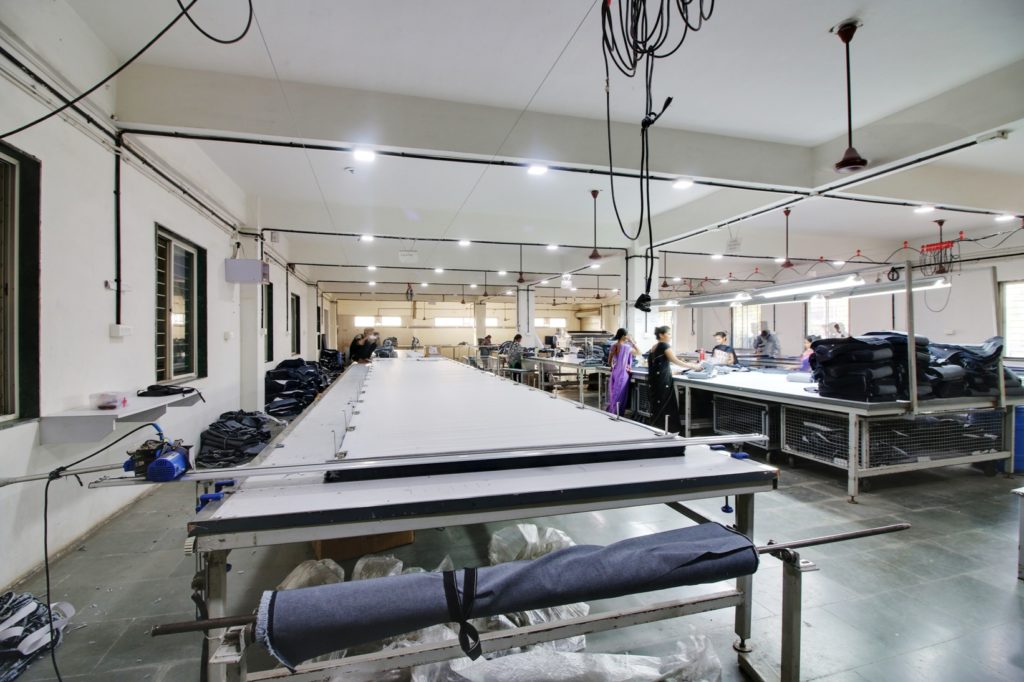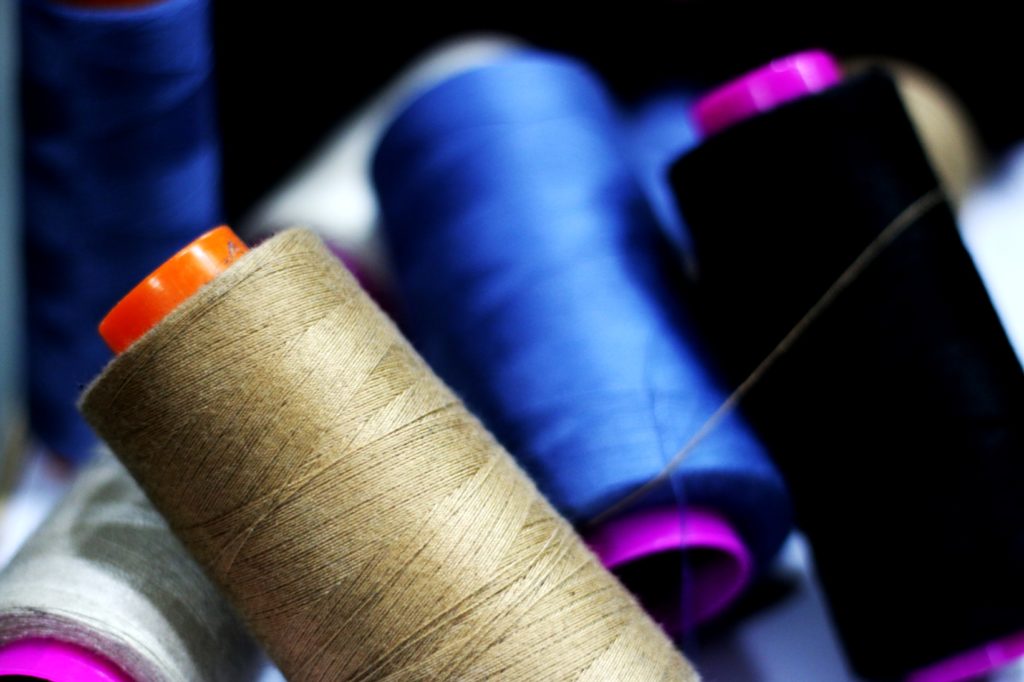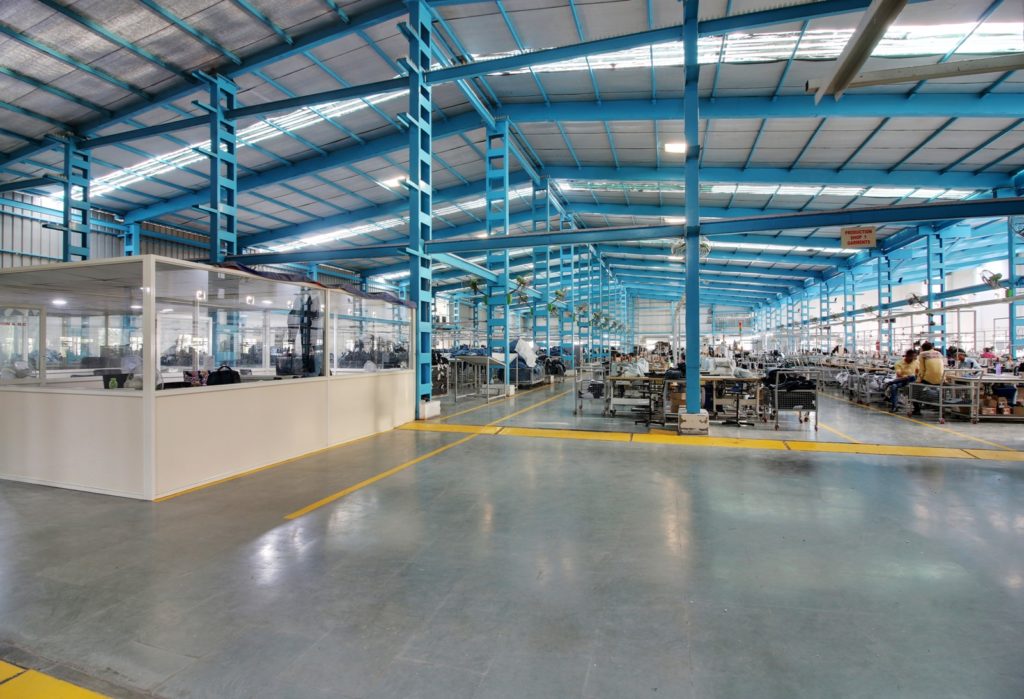Globe Textiles India Ltd. is an ISO 9001:2008 is a leading Indian manufacturer and a star export house of textiles, fabrics and garments based in Ahmedabad. The company started operations in 2008 and has a sprawling futuristic manufacturing facility dedicated to garmenting for international customers in an Apparel Park. Cumulatively, the company has its production capacity spread over 3.5 lakh sq. feet housing various divisions. Together, it manufactures two million bed sets, 36 million meters of fabric and 2.5 million bottoms per annum. It has over 1200 workers and a team of over 100 staff members on board. A diverse product range comprising home textiles, printed fabrics, denims and garments is well entrenched to fortify the company’s penchant to serve the best in class. Globe Textiles is Oeko-Tex certified and all its production facilities have been set up in an environmentally-friendly manner. Led by the deft hands of the members of the management Bhavik Parikh, Bhavin Parikh and Nilay Vora and has emerged as a leading manufacturer to some of the best known national and international brands as a consistent partner with zero rejections. Bhavin Parikh, CEO, Globe Textiles (India) Ltd. tells us more about the journey of the organization in this exclusive conversation.
Tell us more about your company and its history?
The key differentiator that marked its entry into the international denim market was that it chose to go against the tide. It began exporting denim fabrics to China and Hong Kong at a time when Chinese imports into India dominated the scenario. The masterstroke right at the beginning of what was to become a longstanding journey, came through years of research, delving deep into fabric texture and feel, studying fashion trends and demands of the market and assessing self-preparedness to meet client expectations. Between 2008 and 2013, exports dominated the larger pie of operations. GTIL is still one of the most popular exporters of sarongs. GTIL, in June 2017, got listed on the NSE-EMERGE platform for SMEs after an initial public offer aimed at meeting working capital requirement and general corporate purposes. Among an exhaustive list of companies served, noteworthy are Being Human, The Bombay Dyeing & Mfg. Co. Ltd., Pepe Jeans, Splash, Amtex, Fox Home, Vogue International, Winfat, Heather Martin, Indian Trading Co., Vasco International Ltd. Part, Red Tape, Ventura, Ashima Ltd, Shufersal Ltd., Megastar Apparels Ltd., and Vivaa Tradecom Pvt. Ltd.
You are well known for being committed to apparel and textiles. Why did you choose this stream?
We are in the industry for the last 15 years now, starting from a small Shirt Trading Business, and today we have diversified into Trading Yarns, Dyed & Printed Fabrics, Denim Fabric and Manufacturing Denim Jeans & Bedsheets catering to the domestic as well as global markets. Initially when we entered the business we found there were too many players in apparel and textiles, but most of them worked in a traditional and unorganized manner. We sensed an opportunity and the potential this held and built strategies to imbibe a modern and organized working culture. Right from the start, we have followed a policy of partnering with suppliers and buyers to build long term business relations which has worked in our favour. Currently we have over 200 suppliers (50 % of these are 7-8 year old suppliers) and we have over 50 buyers (50 % of these are 7-8 year old buyers)
Tell us about the work you do with designing, manufacturing and engineering fabrics?
Globe Textiles is Oeko-Tex certified and all its production facilities have been set up in an environmentally-friendly manner. We have over 20 in-house designers on board who keep up with the latest trends in fashion in domestic and international markets. We have also partnered with few external designers and consultants to ensure we remain updated on new techniques and knowhow. This in turn, will bolster our efforts to offer something new each time to our customers. This has also helped us to develop better synergies with our buyers. Our textiles business is divided primarily into two segments: Dyed, Printed Fabrics & Home Textile. We have partnered with almost 7-8 different processing houses in and around Ahmedabad & Surat. This has helped us to reduce our lead times, right from designing to deliverance. The second is Denim Garments and we are currently manufacturing 1.80 lakh pieces per month. In-house manufacturing is strong with over 500 machines, more than 800 workers and the latest machineries and equipments from Juki Japan. We have a unique set of machineries, especially tailor- made with an eye on details, as per our product requirement. We also work with Engineering Fabrics. We do a detailed analysis on Yarns & Fabrics, based on which we propose different possible base qualities to our buyers. In few of the cases we engage ourselves from Yarn stage, so we have a consistent quality and competitive pricing. The company is also inching its way closer to attaining a Worldwide Responsible Accredited Production (WRAP) certification or an equivalent certification for its units, which is a benchmark to promote safe, lawful, humane and ethical manufacturing around the world through education. Once clinched in 2017, GTIL will be among the very few textile houses to bag this honour.
Being a well-known name in the industry, what are the changes you have seen in the industry over the decades you have been in business?
Well, people have started shifting their business practices from traditional methods to a more organized way. More and more systems are coming into place and people have started following international standards. Secondly, social compliance and fair trade compliances are becoming a necessity for every business to grow. Customers have become more quality conscious, demanding and requiring faster conversion from design to deliverance.
How challenging is it to maintain the exclusivity of your products?
Very challenging indeed!! It has become difficult to maintain exclusivity, so we have strategies to invent and re-invent all the time. New products and new ideas are encouraged rather than opting for a limited portfolio. We always try and focus on creating something new so that our clients gain from being a first mover.
Tell us more about your product range and materials?
We are doing printed and dyed fabrics for end use in Kaftans, Sarongs, Dress Materials and Shirting for men. Denims Jeans for men, women and kids have been a success and we are also planning to come up with our own brand by January next year. Bed sheets in diverse prints, qualities and global sizes have been one of our bestsellers.
Please detail what kinds of products you export and to which countries?
We export dyed and printed fabrics to Malaysia, Singapore, Myanmar, South America and the Gulf. Denim Jeans are exported to Poland, Portugal and GCC countries. Bed sheets are exported to Israel and Germany.
How have exports grown over the years?
Exports have grown gradually and have been commendable over the years for our business. For last few years, government policies and technological advancements have also helped exports holistically.
What do you think can be done to improve exports?
As of now Bangladesh, Pakistan, Cambodia, Vietnam are big competitors to India. Those countries are preferred countries to import from in Europe the US due to GSP, FTA or incentives. This has taken away a large pie of the business from India. This has also hindered new businesses from entering India. India also needs to get into such agreements to boost exports. Secondly, compliance has been a major game changer where India has to work very hard in order to get the business. Furthermore, government agencies push exporters to meet standard compliance requirement.
What are your future plans?
We are planning to set up a state-of-the-art textile washing unit with a motive to revamp the entire garmenting section and take it to the next level. The unit will be one of its kind, specialized and capable enough to serve the biggest brands of the fashion industry. The unit will be modelled on fashion centricity and the philosophy will be to not just wash but churn out newer fashion trends every day. With a production capacity of 2 lakh pieces per month, with latest machinery and techniques will be made available. The facility is under construction and shall be operational by January 2018. We are determined that this will take our product offering to the next level and help us achieve many milestones, generate more revenues and take us to further growth.
This story appeared in Apparel Magazine Oct 17 issue here: Trade Talk Globe Textiles



Leave a Reply